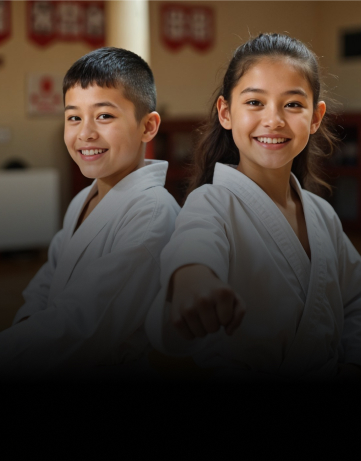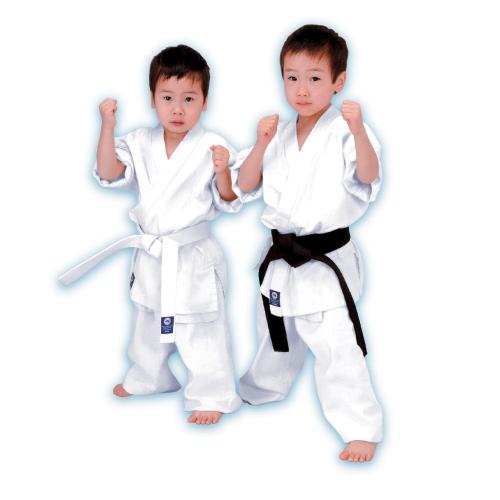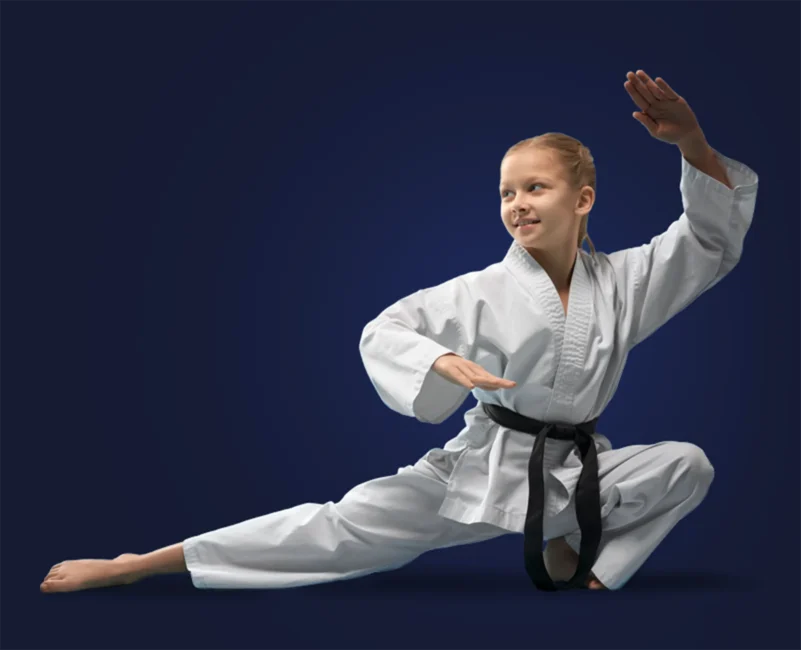Exactly How Martial Arts for Kids Can Increase Confidence and Discipline in Young Martial Artists
Karate for children provides a distinct possibility to build self-confidence and technique in young martial musicians. As they discover brand-new methods and face challenges, they not only obtain skills however additionally create a solid sense of self-respect. This organized environment motivates them to respect the trip of improvement. But exactly how does this training translate right into their day-to-day lives? Discover the deeper links that make karate even more than just a sporting activity.
The Significance of Confidence in Childhood Years Growth
Confidence is an essential foundation in youth growth. When you support your youngster's self-worth, you equip them to face difficulties, take risks, and express themselves easily. Kids with confidence are a lot more ready to discover new activities and social circumstances, which can bring about long-term relationships and beneficial experiences.Encouraging your child to get out of their convenience area fosters strength. They learn that failure isn't completion but rather a stepping rock to success. By celebrating their achievements, no issue just how small, you aid them recognize their capabilities and worth.In this trip, support and positive reinforcement from you play an essential function. Whether it's via appreciation or merely being existing, your involvement enhances their self-confidence. As they grow, this self-assurance comes to be a long-lasting possession, outfitting them to navigate both obstacles and chances with a solid feeling of self.
Just How Karate Educates Discipline and Focus
Karate assists you develop technique and emphasis through its organized training regimen. As you practice mindfulness during each session, you'll find out to focus far better both on and off the mat. And also, setting and accomplishing objectives in karate strengthens your capacity to stay fully commited and alert.
Structured Training Program
While you take part in karate training, you'll rapidly find exactly how an organized regimen instills technique and focus in young experts. Each class follows a particular layout, including warm-ups, technique practice, and sparring. This uniformity instructs you to commit and respect the procedure to improvement. As you discover techniques and kinds, you create a sense of duty for your own progress.The organized setting motivates you to set objectives, whether understanding a brand-new belt or improving a kata. You'll locate that staying concentrated during drills and courses hones your focus. The technique you cultivate in karate prolongs past the dojo, positively affecting your schoolwork and everyday routines. Each session strengthens the value of commitment, aiding you turn into an extra regimented person.
Mindfulness in Technique
As you exercise martial arts, you'll locate that mindfulness ends up being an essential part of your training. Each move needs your full interest, helping you remain concentrated on the here and now minute. You'll learn to disregard diversions and concentrate on your breathing, activities, and intents. This increased understanding develops your reflexes and enhances your discipline.During sparring or kinds, you'll discover the value of being emotionally existing - Karate Salisbury MD. You'll notice how this focus not just improves your technique yet additionally builds your confidence. By practicing mindfulness in karate, you cultivate perseverance and resilience, essential characteristics that extend beyond the dojo. This way, karate educates you to harness your mind, aiding you create a disciplined strategy to difficulties both on and off the floor covering

Personal Goal Setting Techniques
Establishing objectives in martial arts isn't practically making belts; it's a powerful way to cultivate discipline and focus. When you set particular, achievable targets, you create a roadmap for your development. As an example, as opposed to simply aiming to improve your kicks, attempt focusing on grasping a particular method each month. This technique maintains you motivated and engaged.Breaking down larger objectives into smaller, convenient actions assists you track your development and celebrate small success along the road. Whether it's perfecting your position or boosting your sparring endurance, every objective strengthens your dedication. As you achieve these objectives, you'll develop confidence in your abilities and establish a solid feeling of discipline that expands past the dojo into everyday life.
Structure Resilience Via Martial Arts
Fighting style, especially martial arts, offers youngsters an one-of-a-kind chance to construct strength in a supportive setting. In courses, they deal with obstacles that press their restrictions, whether it's sparring or mastering a new strategy with a partner. Each obstacle, like a missed kick or a lost match, ends up being a chance to learn and grow.As they exercise, kids discover to accept discomfort and keep attempting, even when points get difficult. They uncover that failing isn't the end; it's component of the journey. This attitude aids them recuperate more powerful, not just in the dojo, yet in day-to-day life.With each obstacle they get over, your youngster builds confidence in their ability to deal with challenges, fueling their decision. Via karate, they'll recognize that durability isn't practically physical toughness; it's regarding psychological grit and determination, empowering them to encounter whatever life tosses their means.
The Duty of Regard in Karate Educating
Regard is a fundamental principle in karate training, cultivating a society of discipline and sociability amongst trainees. When you step onto the dojo flooring, you're not just discovering methods; you're also discovering to respect your trainers, peers, and the art itself (Karate Salisbury MD). Bowing at the start and end of course isn't just a procedure; it signifies your recommendation of others' efforts and dedication.As you create mutual respect, you'll find it improves your discovering experience. You'll listen more attentively to your teacher and gain insights from fellow pupils. This atmosphere encourages constructive criticism and assistance, allowing every person to expand together.Moreover, regard cultivates self-discipline. Recognizing the worth of difficult work and humbleness aids you remain concentrated on your training. In turn, this respect converts right into your why not look here day-to-day life, boosting your interactions and relationships outside the dojo. With karate, you discover that regard is necessary for individual development and neighborhood structure
Achieving and setting objectives Success in Martial arts

Social Abilities and Synergy in the Dojo
While training in the dojo, children naturally develop essential social abilities and teamwork capacities. As they practice together with peers, they learn to connect efficiently, share room, and assistance each other. Each class provides possibilities for collaboration, whether it's throughout companion drills or group workouts. This synergy promotes relationships and develops a feeling of belonging, making the dojo a nurturing environment.Kids additionally get valuable conflict resolution abilities. When they run into obstacles, such as disagreements throughout sparring, they discover to navigate these scenarios constructively. They practice perseverance and empathy, understanding that every person has different toughness and weaknesses.Moreover, taking part in group tasks cultivates a sense of responsibility. You'll see your youngster learning to count on teammates and take responsibility for their function in a team. These experiences not only improve their fighting styles trip however also outfit them with social devices they'll carry right into various other areas of life.

The Long-Term Conveniences of Karate Beyond Childhood
As youngsters grow up and shift into their adult years, the advantages of martial arts prolong much past the dojo. You'll find that the technique and emphasis learned through karate can translate right into your specialist and scholastic life. Setting and accomplishing goals in fighting styles promotes a solid job site principles, which can press you to master any endeavor.Moreover, the confidence gained from understanding techniques and sparring can improve your self-esteem, aiding you take on challenges head-on. This resilience comes to be invaluable as you encounter the uncertainties of adulthood.Additionally, the social skills created with teamwork and camaraderie in the dojo can result in better relationships in both specialist and individual balls. You'll learn to interact successfully, resolve disputes, and build an encouraging network.Ultimately, karate forms not simply proficient martial artists, yet well-shaped people ready to take on the globe.
Frequently Asked Inquiries
What Age Is Finest to Start Martial Arts for Kids?
You can begin martial arts as early as age 4 or 5, but it usually depends on your kid's maturity and interest. Locating a class that suits their age and power degree makes a huge distinction.
Exist Any Kind Of Wellness Conveniences From Exercising Karate?
Yes, practicing karate deals various health advantages. You'll boost your strength, coordination, and adaptability while increasing cardio health and fitness. Plus, it improves emphasis and psychological health, making it a fantastic choice for overall physical and psychological health.
Just How Typically Should Kids Participate In Martial Arts Classes?
You should encourage your children to attend karate courses a minimum of 2 to 3 times a week. Consistency aids them discover strategies successfully and create skills, making their experience much more gratifying and enjoyable in the future.
Can Karate Assist With Managing Anxiousness in Kid?
Yes, martial arts can assist take care of anxiety in kids. It teaches focus and self-discipline while supplying a risk-free electrical outlet for energy. You'll see your youngster expanding a lot more certain and tranquil as they exercise regularly.
What Equipment Is Required for Kids Beginning Karate?
